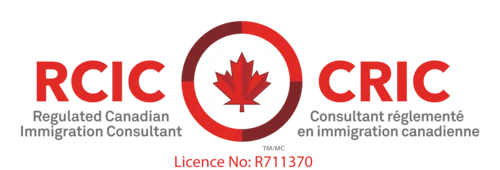Canadian study visa
Many people have chosen to immigrate to Canada because of the high quality of education, the availability of internationally recognized qualifications, and the great social and welfare conditions. However, because Canada has good conditions in every aspect and, unlike many European nations, it accepts a large number of applications to come to its country each year, it may be a suitable option for your stay.
Many people who want to immigrate to another country for a better future and more peace have Canada as their first choice.
This government has given study visas to almost 500,000 new students, and this news alone might motivate and encourage anyone interested in this subject.
What are the types of Canadian study visas?
The Canadian Immigration Organization has supplied two sorts of Canadian visas for studying in Canada, which you can select based on your circumstances and situation.
Canadian minor student visa, which is meant for the study of those under the age of 18, allowing them to study at any level in Canadian schools.
Canadian student visas are meant for those over the age of 18 to study in any of the higher education levels such as college and university and acquire recognized degrees. The duration of an undergraduate course is 3 to 4 years, depending on the type of university, and 1 to 3 years for graduate studies (master’s degree, doctorate, etc.).
Benefits of Canadian study visa:
If you want to study in Canada in order to pursue and develop in your chosen field, we recommend that you continue reading to learn more about the advantages of a Canadian study visa. Among these advantages are:
- The ability to learn in English
- With prominent universities and colleges and the best educational system, Canada provides a psychologically, financially, socially, and physically safe environment.
- The opportunity to work while studying
- The opportunity to work while studying
- Residency after graduation via employment, investment, and asylum
Necessary requirements for obtaining a study visa in Canada:
To get any type of study visa in Canada, you must meet the necessary standards as determined by the Canadian Immigration Department.
requirements for obtaining a Canadian minor student visa:
You must meet the following requirements to obtain a Canadian minor student visa.
- Admission to one of Canada’s primary or secondary schools
- If your child is under the age of ten, he or she must be accompanied by a legal guardian during the study period in Canada.
- If your child is over the age of ten and is not accompanied, you must name someone as his custodian in Canada.
Canada student visa requirements:
To get a Canadian student visa, you must meet the following requirements.
- Criminal record certificate
- Good physical health
- Admission to one of Canada’s universities
- There should be a reasonable proportion between education level and age.
- Pay your living expenses and tuition fees for a year, around 25 to 45 thousand Canadian dollars, so that the Canadian government may verify your financial ability.
- Convince the immigration officer that you can achieve a favorable position if you study in Canada and are immigrating for a clear purpose.
- Your stay in Canada is temporary, and you will depart after your studies are over.
Documents required to obtain a study visa in Canada:
To obtain a visa to Canada, you must first complete and collect all of the essential paperwork, which must then be given to the Canadian immigration office with complete clarity. These documents are normally classified into three categories: personal, financial, and forms, which are discussed further below.
- Acceptance letter from one of the recognized educational institutions in Canada
- CAQ letter (for applicants to study in Quebec)
- Presenting a detailed study program
- Translation of transcripts of the last academic degree
- Translation of the last academic degree
- Providing a scan of the passport’s first page as well as the pages with the visa stamp.
- Providing a scan and translation of the original birth certificate
- Providing two 3 x 4 photos
- Providing a letter of work experience and insurance
- Mandatory Military Service Completion Card or Exemption Card
- Marriage certificate in case of marriage
- Custody certificate for minor student visa
- Consent to leave the country certificate for a minor student visa
- Lawyer’s letter of defense (if you have a lawyer)
- providing tuition payment receipt
- Providing documents of personal assets
- Letter of credit from the bank
- Letter of financial ability in the last 4 months
- Completing study visa application forms
How much does a Canadian study visa cost?
One of the most essential aspects for students planning to immigrate to Canada is the expense of education. These expenses include tuition fees, textbook purchases, transportation, and other key life expenses, which, of course, vary depending on the type of university and chosen city for study.
According to the official data, Canadian citizens require an average of $6,838 for a bachelor’s degree and $7,068 for a master’s degree, whereas overseas students pay approximately $27,159 each year.
Studying at the graduate level is less expensive than studying at the bachelor’s level, while studying in the fields of medicine and engineering is more expensive than studying in the arts and humanities.
The cost of acquiring a study visa in Canada is generally separated into three categories.
1-Registration and university fees
2- Fees for obtaining a visa and a study permit
3-Canadian living expenses
The following is the cost of obtaining a Canadian study visa in each of the steps.
Study Permit | 150 CAD |
Temporary residence permit | 200 CAD |
Tourist visa (for companion) | 100 CAD |
Fingerprint | 85 CAD |
The steps to apply for a Canadian student visa are:
To obtain a Canadian student visa, each of the following stages must be completed thoroughly and precisely.
1- Choosing a field of study and university
2- Obtaining admission to study in Canada
3- Registration and completion of relevant forms
4- submitting the forms
5- Payment of visa fees
6- Fingerprinting
7-Obtaining a Canadian study visa
What is the process to get a Canadian study visa?
Choosing a field of study and university:
Canada is one of the top study destinations in the world. Because of the variety of fields and universities available, you can choose your desired field in any domain you are interested in, both in terms of the prerequisites for obtaining a study visa and in terms of the labor market, and take the necessary measures to Get a study visa.
Obtaining admission to study in Canada:
The applicant must submit an English language certificate to the university in interest in order to be granted a study visa in Canada. In order to continue, the applicant must be admitted to an accredited university, college, or educational facility.
High marks in all specialized courses at the last course of study are required for applicants seeking to immigrate through education.
Registration and completion of relevant forms:
To apply for a study visa in Canada, you must fill out many documents, including the study visa application form, guardian designation form for applicants under the age of 18, family information form, and Canadian visa application form.
To complete the aforementioned forms, simply go to the Canadian Immigration and Citizenship Department’s website and enter your information absolutely truthfully.
submitting the forms:
When submitting an application, all forms and papers must be submitted at the same time.
After you submit your application, a case officer from the Immigration and Citizenship department will review it. If your documents and forms are approved, you will be invited to an interview at a specific time and location; otherwise, your visa application will be denied and no documents will be returned to you.
Payment of visa fees:
After completing the necessary forms and enrolling online, the applicant must pay the Canadian government in full for all visa-related payments, including the application fee and biometrics.
All payments to the Canadian Embassy are made online; please obtain a printout of the receipt and attach a copy to the needed papers before sending them.
Because no credit cards are accepted, it is best to visit the senior consultants of Sabouri Immigration Group to ensure the procedures are correct and to acquire additional information.
Fingerprinting:
The applicant must first upload the appropriate documents on the Canadian Embassy website before beginning the Canadian visa fingerprinting process. You have one month after registering on the site and receiving the tracking code to attend to one of the Canadian Embassy locations for the fingerprinting process (VAC). When you visit these offices, an official will photograph you and instruct you to place your finger on a glass screen to execute the process. It should be mentioned that this stage is required for visa applications.
Obtaining a Canadian study visa:
Following acceptance, you must submit a letter of reference demonstrating visa permission, which you must have with you when you enter Canada.
Finally, the visa will be officially handed to you after the border agent thoroughly validates your study visa and confirms that your conditions are stable and that you will leave Canada after the visa expires.
The reasons for the rejection of the study visa application:
After going through the legal process and submitting documentation to the Canadian Embassy, you may lose hope if your application is rejected, and some of you may be so dissatisfied that you reject the decision totally. But don’t be too hasty!
We are here to help you avoid this by investigating the most common reasons for application rejection. The following are some of the reasons why the Canadian officer may reject the applicant’s application.
- The officer may be skeptical that you want to leave the nation after finishing your studies.
- High application demand and limited acceptance capacity
- insufficient attention to investigate each case
- Inconsistencies in the applicant’s files and documentations
- Insufficient funds to cover expenses
- Inadequate and inaccurate travel planning
- Not having a goal or plan in your own country
In the case of rejection, our legal adviser will uncover all of these flaws and remedy them in the best way possible for you.
Simply call the Sabouri immigration group for a consultation.





